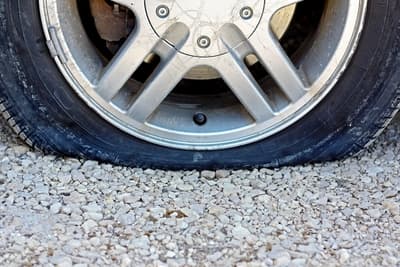When Should Tyre Pressure Be Checked?
When you pick up your new car, the first thing you’ll do is read through the user manual to acquaint yourself with its workings. Make sure to take note of the tyre pressures that your car requires – this will stand you in good stead for being a responsible car owner.

Under and over inflated tyres are not only illegal, they can also be a real danger to your safety on the roads due to the risk of tyre failure. Tyre pressure is important – incorrect tyre pressure can result in increased wear and tear, higher fuel consumption, blowouts, and increased stopping distances, and affected vehicle handling.
With a simple check, you can save money by extending the lifespan of your tyres while also ensuring the safety of road users around you. But when should you be checking your tyre pressure?
When should I check my tyre pressure?
According to TyreSafe, 1 in 4 vehicles on the road have illegal tyres. Make sure that your car isn’t one of them by being proactive about checking your tyre pressure. For example, why not check your tyre pressure every Sunday evening before your working week, or every time you’re filling your car up with fuel. You should also make sure to check your tyre pressure before and after long journeys or journeys with a heavy load.
A key point to remember is that tyre pressure checks should only be undertaken when tyres are cold – before your car has been used. When you drive, your tyres and the air inside them warm up leading to potential false readings.
Underinflated tyres
On average, tyres lose air at 2 PSI per month – so maintaining correct tyre pressure is something that requires constant upkeep. If tyres are underinflated, they will have uneven contact with the road which means that they are likely to wear down quickly as the weight isn’t evenly distributed across the width of the tyre.
Underinflated tyres will also increase rolling resistance or friction between your tyres and the road, meaning that you could be paying more in fuel costs than is necessary. Not only are underinflated tyres economically damaging, they can also be dangerous by contributing to delayed steering, meaning that you could be more likely to be unable to control the car – especially in wet weather.
Overinflated tyres
Overinflated tyres can be just as dangerous and costly as underinflated tyres. When a tyre is overinflated, the centre of the tyre makes more contact with the road than the other parts. Like underinflated tyres, overinflated tyres will have less contact with the road, meaning that you could experience loss of traction and poor braking distances.
Many people believe that overinflating tyres is a good way to increase fuel economy – however, we don’t recommend it. Not only can they be illegal if inflated to too high a pressure, they negatively affect how in control of your vehicle you are, making you a potential liability on the road.
How to check tyre pressure
Car manufacturers set a recommended tyre pressure for cold tyres. These recommended numbers are often displayed in the user manual of your car, but they are also shown inside the driver’s door panel for easy reference.
To check and adjust your tyre pressures:
1.Remove the cap from the tyre nozzle
Keep it safe! When screwed tight to the nozzle, the cap prevents the slow release of air
2.Use a tyre pressure gauge to check your tyre's current pressure
Electric gauges are often able to give the most accurate readings, just follow the instructions on the package
3.Inflate or deflate your tyres
Use the recommended PSI of your vehicle for reference
4.Check tyre pressure again
Ensuring that you haven’t overinflated of underinflated and you’re near the optimum PSI
29 May 2019
Did you enjoy this blog post?
|
12 people found this review helpful
